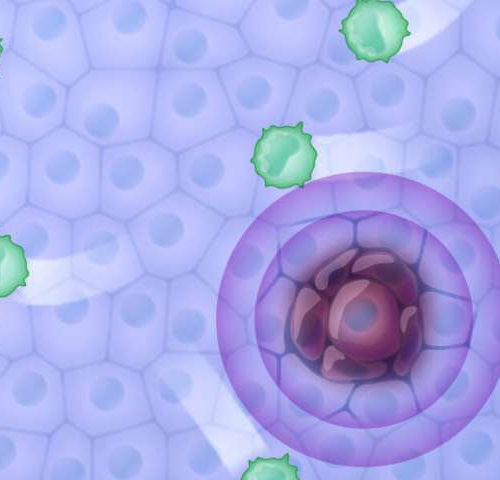by University of Freiburg T cells play a huge role in our immune system’s fight against modified cells in the body that can develop into cancer. Phagocytes and B cells identify changes in these cells and activate the T cells, which then start a full-blown program of destruction. This functions well in many cases—unless the...
Tag: <span>cancer cells</span>
Preventing metastasis by stopping cancer cells from making fat
by Université catholique de Louvain Olivier Feron, a researcher at the University of Louvain (UCLouvain) Institute of Experimental and Clinical Research, seeks to understand how metastases form from a tumor. He previously demonstrated that the most aggressive cancer cells use significant amounts of lipids as energy sources. Now, Prof. Feron has discovered that cancer cells...
Dozens of non-oncology drugs can kill cancer cells
by Broad Institute of MIT and Harvard “We thought we’d be lucky if we found even a single compound with anti-cancer properties, but we were surprised to find so many,” said Todd Golub, chief scientific officer and director of the Cancer Program at the Broad, Charles A. Dana Investigator in Human Cancer Genetics at Dana-Farber,...
Study finds salt nanoparticles are toxic to cancer cells
A new study at the University of Georgia has found a way to attack cancer cells that is potentially less harmful to the patient. Sodium chloride nanoparticles – more commonly known as salt – are toxic to cancer cells and offer the potential for therapies that have fewer negative side effects than current treatments. Led...
DNA Circuits to Identify Cancer Cells
SIAVASH PARKHIDEH MEDICINE, NANOMEDICINE, ONCOLOGY Researchers from Duke University have developed a new DNA-based tool to identify cancer cells. Their system is a DNA circuit. DNA binding to specific cell markers produces a signal if and only if two specific proteins are present, helping to improve specificity and reduce false positives in cancer cell detection....
Cancer researchers discover how immune cells avoid killing themselves
By Michael Irving We have a lot to thank our immune systems for, as they remain ever-vigilant to protect us from cancer and infections. But exactly how do immune cells avoid wiping themselves out while attacking invaders? Researchers at Australia’s Peter MacCallum Cancer Centre and the University College London (UCL) have now found that they...
Eliminating Common Bacterial Infection Significantly Decreases Gastric Cancer Risk
While it is well known within the medical community that there is a link between the bacteria Helicobacter pylori (H pylori) and rates of gastric cancer—commonly referred to as stomach cancer—the rates and risk among Americans has been largely understudied. Now, after analyzing records of close to 400,000 patients, researchers in the Perelman School of...
Forget the Chardonnay, pass me the grape stems: Anti-tumor activity in prostate cancer cells
by Shinshu University Grape stems are discarded en masse during the production of wine. We love and produce a lot of wine in Nagano prefecture, and have been hoping to find a positive use for the previously discarded grape stems. Scientists at Shinshu University studied compounds within grape stem extracts and found significant anti-cancer activity...
Elusive cancer-related protein captured in flight
This news or article is intended for readers with certain scientific or professional knowledge in the field. Scientists have for the first time seen how the MYC protein, which plays a central role in cancer, binds to a key protein and controls important functions in the cell. The new discovery may in the long term help in the development...
3D-printed device finds ‘needle in a haystack’ cancer cells by removing the hay
GEORGIA INSTITUTE OF TECHNOLOGY Finding a handful of cancer cells hiding among billions of blood cells in a patient sample can be like finding a needle in a haystack. In a new approach enabled by 3D-printed cell traps, researchers are removing the hay to expose the cancer cells. Trapping the white blood cells – which...

